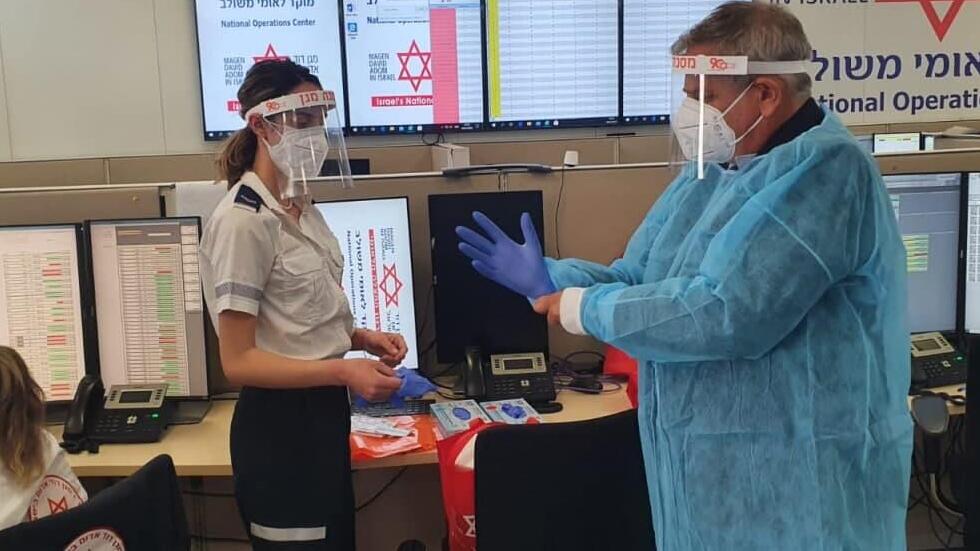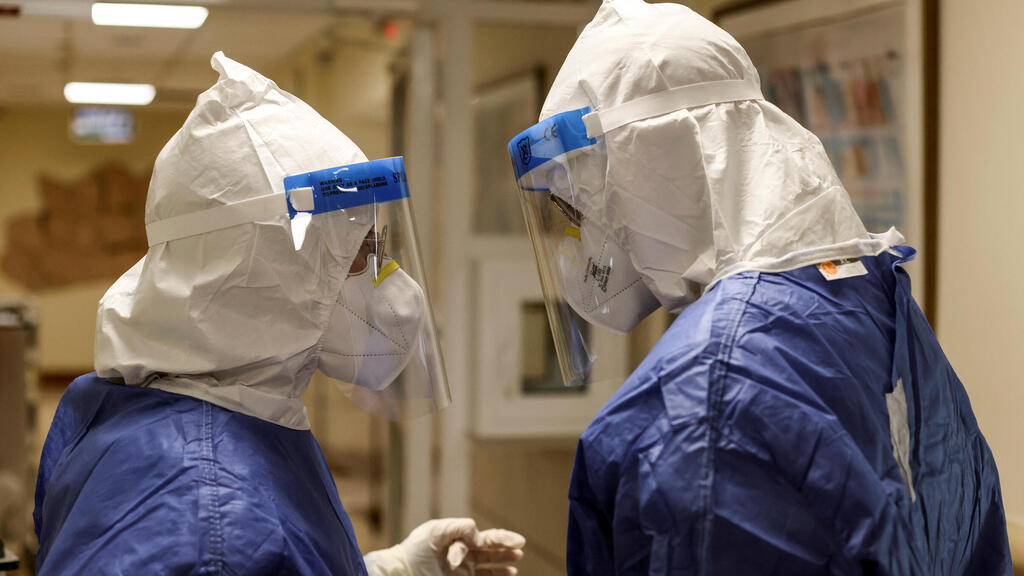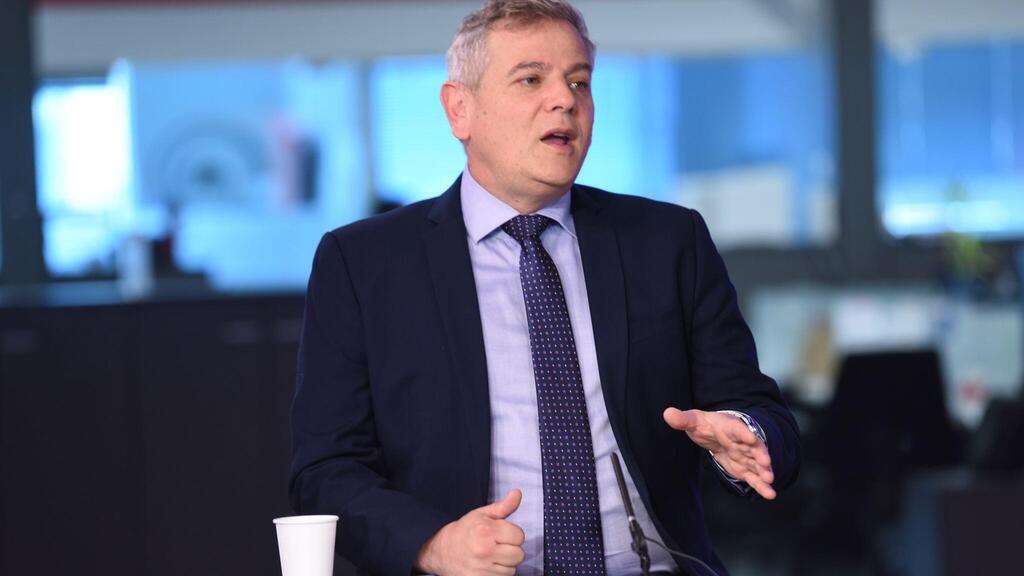Getting your Trinity Audio player ready...
Health Minister Nitzan Horowitz on Wednesday said he was pleased with the continued drop in COVID cases but said the health system is already "preparing" for an additional infection wave.
Israel has been seeing a steady decline in morbidity as the Omicron wave appears to be waning, having led to nearly 80,000 being infected with the virus on a daily basis at its peak.
3 View gallery


Health Minister Nitzan Horowitz visits Magen David Adom coronavirus testing center
(Photo: Magen David Adom )
Speaking to Ynet, the minister said the wave is receding but is still not over. "We still have patients in serious condition in hospitals and there are still many new infections, which is why we are keeping the use of masks in effect. I don't know if or when the next wave will come but we are preparing for it," he said
"The World Health Organization estimates there would be more variants of COVID-19 because half of the world is unvaccinated and that is where variants are formed," Horowitz said. "We are keeping our basic COVID systems working even though there is a reduction in morbidity."
When asked to comment on the sad milestone of 10,000 coronavirus deaths, which Israel reached this week, Horowitz said that those who took the necessary steps, including vaccines, protected themselves.
"Since the start of the pandemic, more than 10,000 people have died and we fought for the life of each one of them," Horowitz said. "We are the only country to administer a fourth dose of the vaccine to our elderly population and to those at risk of serious illness. We've also tested heavily," he said.
"We have not neglected the public, over 700,000 received the dose and remained out of hospital. We provided the most effective tools to prevent illness," he said.
Horowitz also praised the government's policy to keep the economy open and refrain from restrictive health mitigation steps.
3 View gallery


Medical staff chat inside the coronavirus disease (COVID-19) ward at Beilinson hospital in Petah Tikva, Israel August 18, 2021
(Photo: Reuters)
"I think the policy of lockdowns by the former government was harmful and we avoided them while protecting the vulnerable," he said.
When asked whether the government failed to convince parents of the importance of pediatric vaccines, Horowitz said there was much fake news that circulated in the public, which scared parents.
"I don't think our message about vaccines was not heard by everyone in the country, but parents have to make their own choices and I don't want to force anyone like some countries have done," he said.


